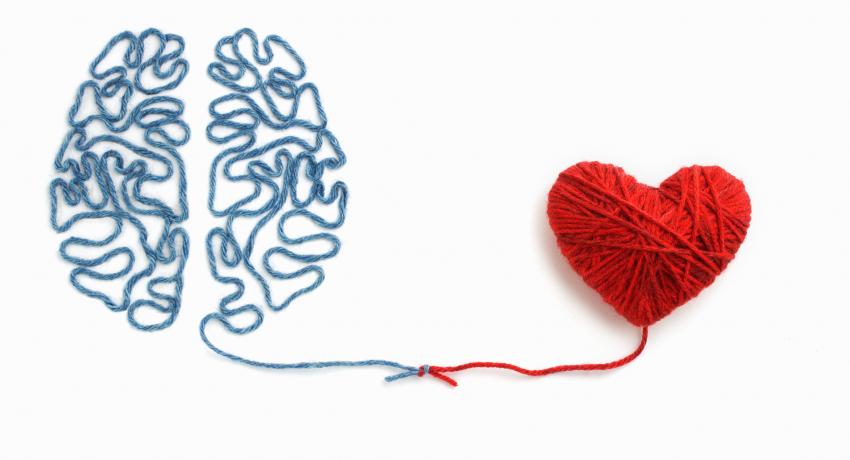Trauma Reminders and Symptoms
Have you experienced something traumatic that still seems to present lingering effects?
Maybe you have a heightened startle reflex, experience vivid and intense nightmares, feel an array of physical symptoms that you just cannot explain, or wander into memories that you would prefer to push to the side.
You might feel as though your life is lacking purpose since your PTSD began. How is it possible that everyone around you is living their normal life, while you are experiencing feelings of numbness and anxiety, constantly preparing for another worst-case scenario, and wondering how you ended up in this position.
You may even be questioning what the signs of trauma even are.
Maybe you are wondering what life would look like on the other side; to be able to trust yourself and those around you, to be more connected to your mind and body, and to be free of these nagging symptoms that create a wall between you and everyone around you.
Your Days Might Not Feel Like They Belong to You
You wake up after a restless night and process through the vivid, life-like dreams you have had. The energy it takes to get out of bed and begin your day feels draining. It feels astounding that those around you are moving through their days unaware or unaffected by the experiences you have had and the lingering feelings of such. You see each part of your day as a task; just get through it and on to the next.
You might find yourself unwinding from your day in a pit of social media consumption, teetering on the verge of dissociation. Maybe you find yourself drinking more than usual or indulging in foods that would not normally be part of your daily consumption. Anything to find those small boosts of serotonin and feel "normal."
But Have I Experienced a Traumatic Event?
Trauma feels like a big word, but the truth is, trauma can lie in various places within our life.
Trauma can be classified by a single event, such as living through a war, a natural disaster, an automobile or motorcycle crash, the death of a loved one, rape or sexual assault, childbirth, etc.
There is also complex trauma, or C-PTSD. This occurs when there is an accumulation of traumatic events that continues to happen repetitively over time, and/or a lack of emotional support and availability from the adults/caregivers in our life. Some examples of this would be family dysfunction, neglect, abuse (as a child or as an adult), abandonment, domestic violence, living with narcissistic parents or a narcissistic partner, or living with a long-standing illness requiring constant medical attention.
Is Trauma Reprocessing Right for Me?
Trauma therapy can help you reduce your symptoms that are impacting your day-to-day life, and regain control of your thoughts, feelings, and relationships. Trauma can cause emotional pain throughout various facets of your life, and together, we can regulate these emotions and move towards recovery from what has happened to you.
Whether you have experienced a single trauma or a complex trauma, processing your trauma can be beneficial in your healing process. If you are looking to make a mind-body connection within yourself, learn to reestablish trust and safety within yourself and others, I am here to help.
Will I Have to Tell My Trauma Story?
The priority in trauma therapy is to keep you internally regulated and safe during sessions. I utilize specialized trauma and somatic based training and evidence-based approaches to ensure this safety and respond to what you need and feel comfortable expressing within each session.
I will never force you to do anything you are not comfortable with, and progress within treatment is possible without sharing your entire trauma story. Some individuals feel pulled to revisit their traumatic event in order to heal, and I will work with you to find the best medium to do so, whether it is verbal sharing, journaling, or story-telling.
Our bodies can heal from trauma without having to talk about the experience from start to finish, so the process can look different for everyone. As every person and experience is different, every course of treatment is different, and we will work to find the best course of action for you.
How Can EMDR Therapy Help Me?
You probably heard about EMDR Therapy or someone recommended EMDR for you. Now you are wondering what it is and how it can help you. You have come to the right place and I hope I can answer some of your questions.
WHAT IS EMDR?
EMDR stands for Eye Movement Desensitization and Reprocessing. It was developed by Dr. Francine Shapiro in 1988 to help with Post Traumatic Stress Disorder (PTSD). Different than traditional therapy, it uses bilateral stimulation, including eye movements, bilateral sound stimulations, and/or tactile stimulations to help process trauma in therapy sessions. It’s also effective in treating anxious and depressive symptoms.
WHAT CAN I EXPECT IN EMDR THERAPY SESSIONS?
You will be provided with hand pulsators or can follow my fingers with your eyes. I will guide you through the process. There is not much talking involved in EMDR therapy sessions because we don’t only want to access the part of the brain that’s controlling language, we want the whole brain to be involved. Of course, if you need a session just to process, you can always discuss this with me. Overall, your therapy time is just that...your time to address what you need.
HOW WILL I KNOW IF EMDR THERAPY IS RIGHT FOR ME?
When I start EMDR Therapy with you, I start by helping you build resources you can use to cope with anxiety and distress—such as building a peaceful place where your brain can always travel to, a character that can protect you, certain scents that can ground you, or a song that can alternate your moods. This is a good place to test out whether EMDR therapy will be beneficial to you or not. It is also important that we have a good rapport and trusting therapeutic relationship. Once you are ready to process your trauma, we can use EMDR Therapy. Please remember, you have the control and stop during EMDR if needed.
HERE ARE 5 WAYS EMDR THERAPY CAN HELP YOU
1. It helps process trauma. If you are experiencing flash backs, intrusive thoughts and intense feelings, or just can’t get certain events out of your head, EMDR Therapy can help. Chances are, these things are like a big, gigantic rock. Your brain just can’t file it away, so you keep re-experiencing the same thing over and over. EMDR Therapy helps break that big rock into smaller pieces, so your brain can process them and file them away with less intense thoughts images, and feelings.
2. It helps find out your deep root cause/s. You may be stuck with certain untrue thoughts all your life and are having a hard time believing otherwise. For example, you may have been told as a child over and over again that you were fat and ugly, and now as a grown individual, even though all your friends and family around you see you as healthy and attractive, you just can’t see it yourself. EMDR Therapy can help find out the root cause, traveling back to the time where you first felt, thought, and saw yourself that way.
3. Your brain is doing the work. In traditional talk therapy, a therapist might help you with more positive or reality-based thinking. You may think rationally, yet somehow you just don’t feel it. The beautiful part about EMDR Therapy is that, through processing in session, your brain and body actually will tell you what you would rather believe. Most of the time, your therapist will help you link that belief with how your body is feeling in the moment as well.
4. It helps with depression and anxiety. EMDR Therapy can help process memories, including body memories, that are associated with depressive and anxious symptoms.
5. It helps prepare for future events. Maybe you have an event coming that induces anxiety. EMDR Therapy can help you prepare for that future event.
Below are some helpful articles, graphics, and videos:
TAKE THE NEXT STEP
If you think we might be a good fit, or would like to chat more before being scheduled, simply contact me.

